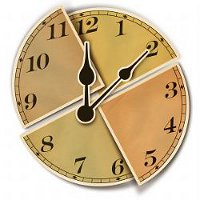
In 1898 J.W. Dunne was staying at a hotel in Sussex when he dreamed he was arguing with one of the waiters. He was claiming that it was 4:30 in the afternoon, and the waiter maintained it was 4:30 in the morning. “With the apparent illogicality peculiar to all dreams, I concluded that my watch must have stopped; and, on extracting that instrument from my waistcoat pocket, I saw, looking down on it, that this was precisely the case. It had stopped — with the hands at half-past four. With that I awoke.”
He lit a match to see whether his watch really had stopped. It was not by his bedside, but after some hunting he found it lying on a chest of drawers. It had stopped, and the hands stood at 4:30. Noting the coincidence, he wound the watch and returned to bed.
On coming downstairs the next morning, he went to the nearest clock in order to restore the watch to the correct time. He expected to find it off by several hours, as he supposed it had stopped during the previous afternoon and was rewound in the middle of the night.
But “to my absolute amazement I found that the hands had lost only some two or three minutes, about the amount of time which had elapsed between my waking from the dream and rewinding the watch.”
In other words, the dream watch and the waking watch had stopped at the same moment. Possibly the sleeping Dunne had sensed that his watch’s familiar ticking had stopped, and this had informed his dream. “But — how did I come to see, in that dream, that the hands stood, as they actually did, at half-past four?”
